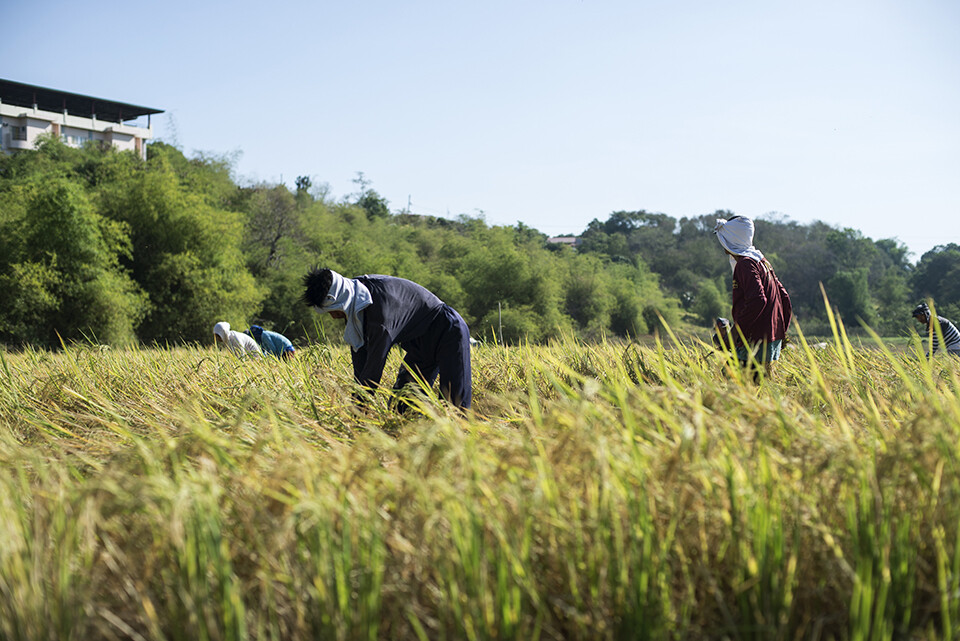
The Philippine Department of Agriculture (DA) announced on the 9th that it expects a significant reduction in damages to the agricultural sector this year, thanks to more favorable weather conditions. This positive outlook follows a report from the DA's Disaster Risk Reduction and Management (DA-DRRM) Operations Center, indicating minimal damage from Typhoon Bising (international name: Danas) and the Southwest Monsoon.
The DA-DRRMOC reported that so far, the damage to palay (unmilled rice) amounts to only 300,863 pesos (approximately 7 million KRW), affecting 13 farmers. This is a very encouraging figure compared to last year's extreme weather events, which saw alternating El Niño and La Niña phenomena.
DA Spokesperson Arnel de Mesa stated in a press briefing, "We will not experience extreme typhoons like last year," emphasizing, "Compared to last year, when we had El Niño and La Niña phenomena, this year's rainy season will be more beneficial to the agricultural sector, leading to more robust production or reduced damages."
In 2024, the Philippines suffered a loss of at least 1 million tons of palay, far exceeding the historical annual agricultural loss range of 500,000 to 600,000 tons. De Mesa predicted that increased palay production this year would also lead to a reduction in rice imports. He said, "Last year, we imported a record 4.8 million tons of rice, but we can expect fewer imports this year."
According to the Bureau of Plant Industry (BPI), rice imports in the first half of 2025 were 2.236 million tons, less than the 2.34 million tons during the same period in 2024. The Department of Agriculture expects total rice imports this year to be lower than 4.8 million tons, considering both positive harvest forecasts and declining international rice prices. The DA aims to achieve a domestic palay production of 20.46 million tons by the end of this year.
The Philippines is a typical tropical country where agriculture plays a crucial role in the national economy. Rice is the staple food of Filipinos, and other crops such as coconuts, sugarcane, bananas, and mangoes are also produced. However, due to its geographical characteristics, the country is highly vulnerable to natural disasters like typhoons, floods, and droughts, which directly impact agricultural production, leading to unstable farmer incomes and threatening food security.
In recent years, as the impacts of climate change have intensified globally, the Philippines has also suffered from unpredictable extreme weather events. In particular, El Niño and La Niña have severely disrupted rainfall patterns in the Philippines, causing alternating droughts and floods and inflicting immense damage on the agricultural sector. The record palay loss in 2024 was a prime example of this climate crisis.
However, the positive outlook presented by the Philippine Department of Agriculture this year can be interpreted as a result of both adaptation efforts to climate change and the help of nature. Beyond simply improved weather conditions, the Philippine government and farmers have made various efforts to strengthen the resilience of agricultural systems.
The Department of Agriculture has strengthened its disaster risk reduction and management system, establishing a framework to quickly assess and respond to damages in the event of weather-related disasters. Furthermore, it has focused on enhancing proactive prevention and post-disaster recovery capabilities, including the development and dissemination of drought-resistant varieties, improvement of irrigation facilities, and expansion of crop insurance schemes. These efforts contribute to minimizing damage from climate change and stabilizing agricultural productivity.
In the long term, the Philippines is seeking a transition to sustainable agriculture through the adoption of climate-smart agricultural technologies. This includes increasing water use efficiency, utilizing precision agriculture techniques to reduce resource waste, and building climate-resilient crop systems. Programs that provide farmers with information on climate change and training in new agricultural technologies to enhance their adaptability are also actively being pursued.
This announcement by the Department of Agriculture suggests that the Philippines' efforts to enhance the resilience of its agricultural sector and ensure food security amidst the challenges of climate change are gradually bearing fruit.
[Copyright (c) Global Economic Times. All Rights Reserved.]






























